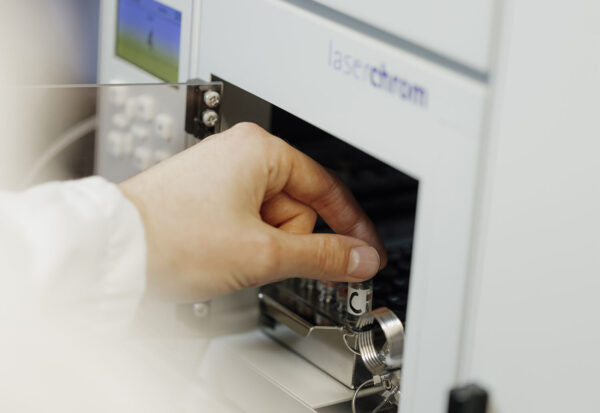Sustainable & Functional Material Development
In-house expertise
As part of NIRI’s extended services and capabilities, we provide specialist chemistry support and advanced materials research. Our in-house chemists offer expert advice on a range of topics including: reformulation, characterisation, supply chain validation, and technology transfer for companies looking to create a new range of products of diversify their current portfolio.
With a team of experienced and knowledgeable chemists, we provide expert guidance and support to help our clients improve the quality and performance of their products. Whether you are looking to reformulate an existing product, characterise a new compound, validate your supply chain, or transfer technology to a new market, our team is here to help.

“NIRI has a proven track record of success and are committed to driving innovation and delivering exceptional results for our clients.”

Polymer engineering
Polymer engineering is a key area of expertise in the development of nonwoven products. NIRI’s team of experts are involved in the design, synthesis, and processing of polymeric materials to create products with desired properties and characteristics.
Polymer engineering plays a crucial role in the development of materials for use in a wide range of applications, including filtration, insulation, and medical supplies.
Reformulation
Reformulation is a process in which the composition or formulation of a product is modified in order to improve its performance or to make it more sustainable.
In the context of nonwoven product development, reformulation typically involves changing the type or amount of fibres used to make the material or textile. NIRI works closely with its clients and finds solutions to improve the properties of the finished product.


Characterisation
Characterisation is the process of evaluating and measuring the physical, chemical, and mechanical properties of a material.
Characterisation is essential for understanding the behaviour and performance of nonwoven materials under different conditions, and for determining the suitability of a material for a particular application.
NIRI’s team of chemists use various techniques for measuring the properties of a material, including microscopy, tensile testing, and thermal analysis.
Supply chain validation
Supply chain validation is an essential part of the nonwoven product development process. NIRI provide a world-class service that involves verifying and documenting the quality and integrity of the materials, components, and suppliers that are used to create a nonwoven product. This helps to ensure that the final product meets the required specifications and performance standards.

We provide expert guidance and support to help our clients improve the quality and performance of their products.
Technology Transfer
A technology transfer typically involves transferring knowledge and expertise about the production and characterisation of a particular material from research institutions or other organisations to companies that will manufacture or develop nonwoven products.
The team at NIRI has access to the latest knowledge and innovations in the field, and we apply this knowledge to the development of new and improved nonwoven products. This knowledge is then passed on to our clients as we share expertise and resources in order to accelerate the development of new products and technologies.

Surface & Coating Engineering
Surface coating and engineering are techniques used to modify the surface properties of a material in order to improve its performance or to provide specific functionalities.
NIRI uses techniques such as chemical treatment, physical vapor deposition, and electrospinning to improve the properties of nonwoven materials. Properties such as their strength, durability, absorbency, and resistance to water and other fluids.
Custom Synthesis
Custom synthesis is the process of creating custom-made chemicals or materials to meet specific requirements or specifications.
By combining different chemicals and materials in creative ways, NIRI’s chemists can create bespoke nonwoven materials that have unique properties and performance characteristics that are optimised for specific applications and environments.

Characterisation & Optimisation
NIRI uses characterisation and optimisation to deconstruct a product to understand its design, construction, and functionality. Reverse engineering is often used to analyse existing nonwoven products to understand their properties and performance, and to identify potential improvements or routes to innovation.
This provides insights that can be used to develop new and improved nonwoven materials and products and identify ways in which materials and techniques can be improved or adapted for new applications.